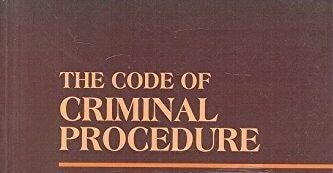Under Indian law, a complaint is a formal allegation made before a Magistrate about commission of an offence, according to Section 2(d) of the Code of Criminal Procedure, 1973 (CrPC). A complaint is for non-cognizable offence or in cases where police refuse to act, whereas an FIR is about cognizable offences lodged with the police. A complaint is very important for access to justice by the citizens of India. This article outlines the step-by-step legal process, applicable sections of law and relevant judgements for lodging a complaint in India under the criminal and civil systems.

Legal Framework for Complaints in India
The primary legal authority of a complaint in India is found in the Code of Criminal Procedure, 1973 (CrPC). Section 2(d) of CrPC defines a complaint as an oral statement or document presented to a Magistrate with the intent that the Magistrate will take notice of it under Section 190 CrPC. But a complaint does not include a police officer’s report.
The CrPC lays out the process for the filing and resolution of complaints in detail, covered in Sections 200 to 204, which cover the examination of the complainant, inquiry by the Magistrate under Section 202, and issue of process. Unlike FIRs (Section 154 CrPC), complaints usually deal with non-cognizable offences, with the Magistrate playing a central access point as a first step instead of the police.
In addition to CrPC, a complaint can be filed under a number of special statutes such as the Consumer Protection Act, 2019, Protection of Women from Domestic Violence Act, 2005, and the Information Technology Act, 2000 with each laying out procedure and forum.
Types of Complaints
Complaints in the Indian legal system can generally be categorized as:
- Criminal Complaints: These complaints are filed for non-cognizable offence under CrPC. Like criminal defamation, cheating, public nuisance etc. The police cannot act on them without a magistrate approval.
- Civil Complaints: These complaints deal with personal dispute about rights and obligations. For example, property or contractual disputes, or injunction requests.
- Statutory Complaints: These complaints are filed under special laws that have a separate and special statute process. For example, Consumer Protection Act, 2019, Domestic Violence Act, 2005, or Information Technology Act, 2000. In these cases, the latest statutes will usually outline the process to file or action complaints. These are usually filed in front of a specially formed forum or tribunal.
Step-by-Step Procedure to File a Complaint (Criminal)
The process for filing a criminal complaint in India, for non-cognizable offences, is governed by the CrPC:
Who Can File
A person who is a victim, any witness, or even a third party, who is aware of the commission of any offence, can file a complaint.
Where to File
The complaint will be filed before a Judicial Magistrate First Class (JMFC) or a Metropolitan Magistrate, who has jurisdiction over the place where the offence took place. The basis of this procedure applies the provisions of section 190(1)(a) CrPC, which allows Magistrates to take cognizance of the matter if a complaint is received.
How to File
The complaint can be made orally or in writing under section 200 CrPC. The written complaint is to contain:
- Name and address of complainant and accused (if known), having regard to any privacy safeguards or pre-existing protections the accused might claim,
- Nature of offence,
- Date, time and place of offence,
- Any supporting documents/evidence.
Some courts have required an affidavit to prevent false complaints, by invoking the decision in Priyanka Srivastava v. State of U.P. (2015) 6 SCC 287.
Examination of the Complainant
The Magistrate will examine the complainant and witnesses on oath, and the examination will be recorded according to section 200 of CrPC.
Preliminary Inquiry
The Magistrate may order the police to carry out investigations or conduct an inquiry without process being issued to determine if process should issue according to Section 202 CrPC, if he finds it necessary to investigate.
Issue or Dismissal of Process
- If a prima facie case is established the Magistrate will issue a summon or warrant under Section 204 CrPC.
- If there are no sufficient grounds, the Magistrate may dismiss the complaint under Section 203 CrPC.
This is a structured process and both a mechanism to exercise a right to sue, and a protection against frivolous litigation.
Process of Filing Complaints in Civil and Other Laws
In addition to criminal complaints through the CrPC, there are various routes for submitting civil and statutory complaints under different specialized laws. Each has a separate process and forum.
A. Complaints Against Consumers
A complaint can be filed under the Consumer Protection Act 2019, if a consumer has experienced deficiency in service, unfair trade practices, or defective goods. In this case the jurisdiction will be subject to the value of the goods/services as mentioned below:
- District Commission – up to ₹50 lakhs.
- State Commission – ₹50 lakhs– ₹2 crore.
- National Commission – above ₹2 crore.
Filing process: Firstly, draft a written complaint stating the facts, copies of proof of purchase and invoice, and the compensation claimed. Secondly, file it at the appropriate forum or use the e-Daakhil portal (https://edaakhil.nic.in).
B. Domestic Violence Complaints
Under Section 12 of the Protection of Women from Domestic Violence Act, 2005 every aggrieved woman can make a complaint to the Magistrate. The provisions of the Act allow filing the complaint through:
- Protection officer,
- Non-Governmental organization (NGO) or
- directly by the aggrieved woman.
The Magistrate may provide protection orders, residence orders and monetary relief under Section 18-22 of the act.
C. Cyber-crime Complaints
Under the Information Technology Act, 2000 victims of fraud on the internet, cyber bullying, data breaches, etc. can file a complaint:
- Online at https://cybercrime.gov.in
- By going to the nearest Cyber Cell of Police Department.
Notable Case Laws
Indian Courts have expounded and affirmed the process and principles of making complaints in a series of flagship cases.
1. Priyanka Srivastava v. State of U.P. (2015) 6 SCC 287
In this case, the Supreme Court held that an affidavit of complaint is necessary when forwarding a criminal complaint, in order to prevent frivolous or vexatious litigation.
Keywords: frivolous complaint, affidavit, Section 156(3)
2. Rameshbhai Pandurao Hedau v. State of Gujarat (2020) 4 SCC 168;
This case explained that magistrates are not obliged to always order investigations in criminal complaints. They may also use the discretion provided them under Section 202 of the CrPC to conduct a preliminary inquiry before issuing process.
Keywords: Section 202 CrPC, Magistrate discretion, cognizance.
3. Subramanian Swamy v. Union of India (2016) 7 SCC 221;
In this case, although it focused on criminal defamation, it reiterated the settled principle that courts should search for a balance between allowing someone to bring a complaint and freedom of speech. The judgement validated the constitutionality of Sections 499-500 IPC, but warned of the careful application of these sections.
Keywords: criminal defamation, freedom of speech, complaint under IPC
Rights and Duties of the Complainant
A complainant has certain rights under Indian law to help fair access to justice as well as certain legal obligations:
Rights of a Complainant:
- Right to be heard: Under Section 200 of the CrPC the complainant has to be examined on oath, giving the complainant the chance to make their case.
- Right to appeal: The complainant has the right to appeal he/she is dismissed under Section 203 of the CrPC by filing a revision petition under Section 397 of the CrPC.
- Right to legal representation: The complainant has the right to get an advocate to represent them in proceedings.
- Right to compensation: In certain civil complaints (e.g. Consumer Protection Act, 2019), the complainant may also be entitled to compensation in respect of alleged grievances as proven.
Obligations of a Complainant:
- Duty of truthfulness: Making a false complaint may lead to penal action under Section 228 and 253 of the BNS, 2023.
- Duty to reveal material facts: The complaint must be genuine and validated by evidence.
- Avoiding misuse: Courts do not like to see malicious prosecution. A complainant may have to bear costs or formulate penalties if determined to be misusing the complaint process.
The purpose of the rights and responsibilities of a complainant is to ensure that the complaint process is a mechanism for justice and not for harassment.
Online Complaint Filing Options in India
A growing number of online portals allow citizens to file complaints in a manner that enhances accessibility and lowers barriers:
Cybercrime Complaints:
Portal: https://cybercrime.gov.in
If the offence involves online fraud, cyberstalking, identity theft, etc. The user has to submit their complaint, along with all digital evidence.
Consumer Complaints:
Portal: e-Daakhil https://www.india.gov.in/e-daakhil-portal
Is a platform for filing of consumer complaints online, along with documentary evidence.
State Police Portals:
Many of the state police portals (e.g., Delhi & Maharashtra) provide platforms to individuals to file other types of complaints (non-FIR type) or report lost articles.
Women’s Helplines Portals:
Many of the commissions and police (e.g., NCW – National Commission for Women https://ncwwomenhelpline.ncw.gov.in/ ) accept online complaints related to harassment or domestic violence.

When a Complaint Can Be Rejected or Dismissed
A Magistrate may dismiss a complaint under Section 203 of the CrPC if, after examining the complainant and any witnesses, the Magistrate has no sufficient grounds to proceed with. The key grounds for dismissing a complaint under Section 203 of the CrPC are as follows:
- Non-appearance of any prima facie offence: If the complaint does not disclose factors which comprise any of the ingredients of an offence.
- Lack of jurisdiction: If the alleged act lies beyond the jurisdiction of the Magistrate, either summarily or in subject-matter jurisdiction.
- Frivolous or Malicious complaints: Where complaints are filed based on mala fide or frivolous motives.
- Refusal to comply: Where there is a failure to provide the relevant affidavit or supporting documents to the complainant, the Magistrate could, dismiss a complaint by proceeding summarily.
A Magistrate must briefly record reasons for such a dismissal.
FAQs about How to file a complaint in India
How to file a complaint in India
A complaint, pursuant to Section 200 CrPC, is made before a Magistrate, generally regarding non-cognizable offences. An FIR is registered by police officers under Section 154 CrPC for cognizable offences like murder or robbery. There is no automatic investigation by the police when dealing with a complaint as opposed to an FIR.
Can a complaint be filed online in India?
Yes. Complaints can be filed online via several websites:
Cybercrime Portal: cybercrime.gov.in
Consumer Complaints: edaakhil.nic.in
State Police Portals: For lodging missing / lost reports or grievances.
What are the implications if a complaint was false or misleading?
Filing a false complaint is an offence as defined under Section 182 IPC (false information to a public servant) and Section 211 IPC (false charge of offence). Any person convicted of filing a false complaint is liable to imprisonment and / or fine. A complainant might also be subject to a suit for defamation and for malicious prosecution.
